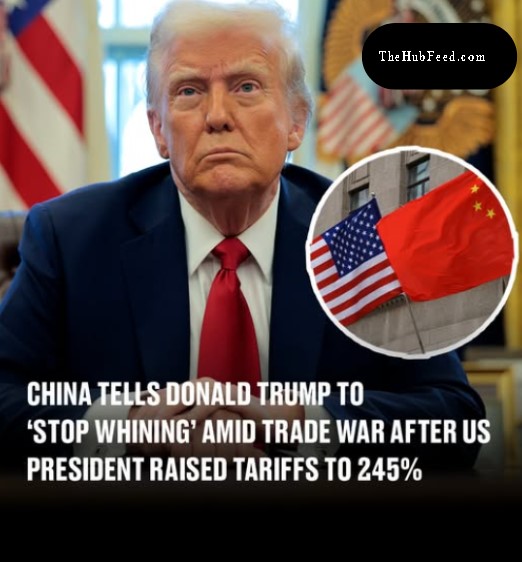China’s State Media Criticizes U.S. for ‘Taking a Free Ride on the Globalization Train’
Beijing, April 2025 — Chinese state-run media has sharply criticized the United States, accusing it of benefiting disproportionately from globalization while increasingly rejecting the very system it once championed. The latest commentary reflects deepening tensions between the world’s two largest economies as global trade, technology, and political alliances continue to evolve.
According to an editorial published in the People’s Daily, a prominent outlet closely aligned with the Chinese Communist Party, the United States has long “taken a free ride on the globalization train,” reaping the rewards of open markets, international labor, and cross-border capital flows—while now advocating for protectionist policies that undermine global economic cooperation.

Accusations of Hypocrisy
The article claims that for decades, the U.S. has positioned itself as a leader of global liberalization, encouraging developing nations to open their economies, embrace free trade, and adopt U.S.-led financial norms. However, in recent years, Washington has increasingly shifted toward economic nationalism—imposing tariffs, restricting technology transfers, and prioritizing domestic manufacturing over global interdependence.
“Now that the train has reached a point where shared responsibility is needed, the United States wants to disembark, rebrand the journey, and criticize the very track it helped lay,” the commentary stated.
This rhetoric appears to respond to recent U.S. efforts to reduce dependence on Chinese manufacturing, re-shore supply chains, and tighten controls on critical technology exports. Beijing has expressed frustration with these measures, arguing they disrupt global stability and economic development.
A Broader Strategic Dispute
This critique is not occurring in isolation. Over the past several months, China has intensified its messaging that the U.S. is retreating from multilateral commitments in favor of a selectively transactional foreign policy. Chinese officials have pointed to Washington’s withdrawal from trade agreements, skepticism toward international institutions, and its use of sanctions as evidence of what they see as inconsistent engagement with the global system.
Foreign policy analysts suggest that China’s messaging is part of a broader effort to reposition itself as a more consistent and inclusive global partner—particularly to countries in the Global South, many of which have voiced concerns about U.S. unpredictability and shifting priorities.
Globalization at a Crossroads
This latest exchange of narratives underscores a growing divergence in visions for the future of globalization. While the U.S. increasingly promotes “de-risking” from strategic rivals and reinforcing domestic industry, China emphasizes economic integration, supply chain connectivity, and infrastructure development through initiatives such as the Belt and Road Initiative.
Nevertheless, both nations face internal and external pressures. The U.S. seeks to safeguard its technological edge and address domestic job losses linked to overseas manufacturing. Meanwhile, China must contend with slowing growth, rising debt, and foreign skepticism about its regulatory environment.
As the global economic order continues to shift, the debate over who has benefited most from globalization—and who bears responsibility for its future—will likely remain a point of contention between Washington and Beijing.
